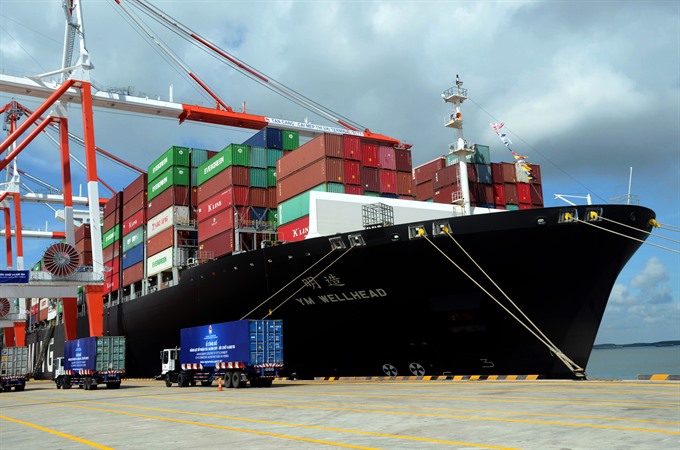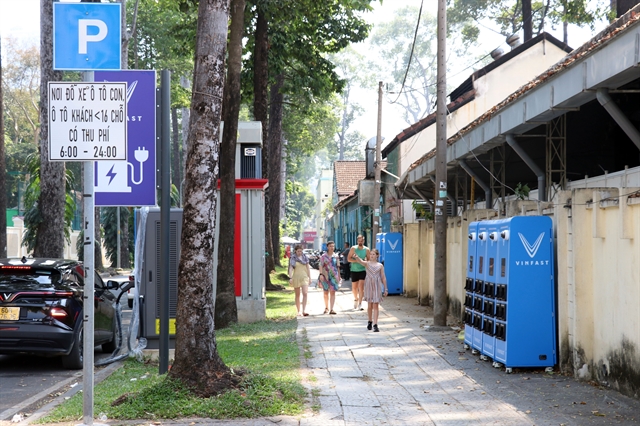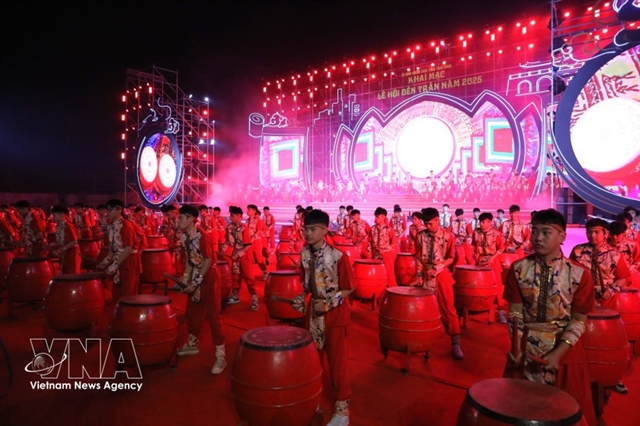 Politics & Law
Politics & Law

A law on foreign trade management is needed to better manage foreign trade activities as Việt Nam integrates deeper into the global economy, said lawmakers while discussing the draft law at the ongoing third session of the 14th National Assembly (NA) on Thursday.
 |
| The container ship YM Wellhead with a capacity of 160,000 TEUs, one of Taiwan-based Yang Ming’s latest fleet, successfully docked at Tân Cảng Port in the Cái Mép - Thị Vải port complex in the southern province of Bà Rịa - Vũng Tàu. — VNA/VNS Photo Đoàn Mạnh Dương |
HÀ NỘI — A law on foreign trade management is needed to better manage foreign trade activities as Việt Nam integrates deeper into the global economy, said lawmakers while discussing the draft law at the ongoing third session of the 14th National Assembly (NA) on Thursday.
NA deputies said the law would serve as a tool for the State to better manage foreign trade activities to ensure transparency and compliance with international law as well as increasing economic competitiveness.
However, they said some articles of the draft should be adjusted to ensure the efficiency of the law, particularly regulations relating to issues on State management responsibility on foreign trade, import and export quotas, the appointment of border gates for import-export, the management of licences, as well as procedures and policies.
Deputy Phạm Văn Tuân from the northern province of Thái Bình said the draft law should clearly regulate the responsibilities of the Government, ministries and local authorities, particularly the responsibility of the Ministry of Industry and Trade, in issues like administrative procedure reform, management of and granting of export licences, to ensure transparency.
“It is also necessary to have clear criteria relating to lists and amount of products that are licensed for export to support businesses, organisations and individuals,” he said.
Deputy Nguyễn Thanh Thủy from the Mekong Delta’s Hậu Giang Province said the law was related to many current laws such as laws on commerce, tax and customs so the law should be built carefully to prevent overlaps.
Regarding regulations on products banned from import and export, many deputies said there should be clear principles and criteria on the lists of these products in line with Việt Nam’s international commitments, including the General Agreement on Tariff and Trade.
Based on these criteria and principles, the Government will have detailed lists of products banned from export and import to protect national interests in national defence, security, health, environment and traditional customs, they said.
To develop foreign trade activities, many deputies pointed to the necessity to have policies promoting foreign trade and empowering localities and Vietnamese representative agencies abroad to hold trade promotion activities.
Deputy Đing Công Sỹ from Sơn La Province, northern Việt Nam, said the draft law should add principles of establishing organisations specialising in doing trade promotion activities and have clear regulations on the operation of these organisations.
Some deputies said measures to support businesses in foreign trade activities were also needed.
Earlier the same day, lawmakers heard a Government report on the draft revision of the 2009 Law on Public Debt Management.
The report said after seven years of implementation, the law has created a legal framework for socio-economic development, contributing to stabilising the macro-economy and promoting growth and the development of the domestic capital market.
However, public debt management still has shortcomings, so revising the law is necessary to deal with them and to concretise Party and State policies and guidelines, it said.
Under the draft revision, public debt still includes Government debt, debts underwritten by the Government and debts incurred by provincial and municipal authorities as regulated by the current law. Debts incurred by State-owned enterprises are not counted as public debt.
Later the same day, NA deputies discussed the implementation results of the socio-economic development plan and State budget in 2016; the implementation of the socio-economic development plan and State budget in early months of 2017; and State budget balance of 2015. — VNS




